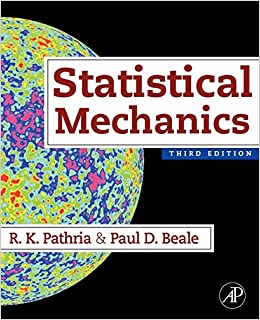If we take the function (f(q, p)) in equation (3.5.3) to be (U-H(q, p)), then clearly (langle
Question:
If we take the function \(f(q, p)\) in equation (3.5.3) to be \(U-H(q, p)\), then clearly \(\langle fangle=0\); formally, this would mean
Data From Equation (3.5.3)
 \[
\[
\int[U-H(q, p)] e^{-\beta H(q, p)} d \omega=0
\]
Derive, from this equation, expression (3.6.3) for the mean-square fluctuation in the energy of a system embedded in the canonical ensemble.
Fantastic news! We've Found the answer you've been seeking!
Step by Step Answer:
Related Book For 

Question Posted:





